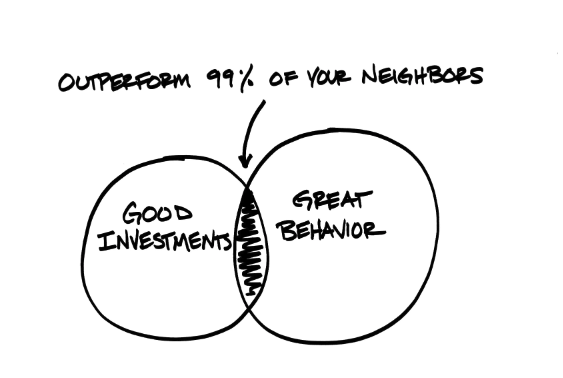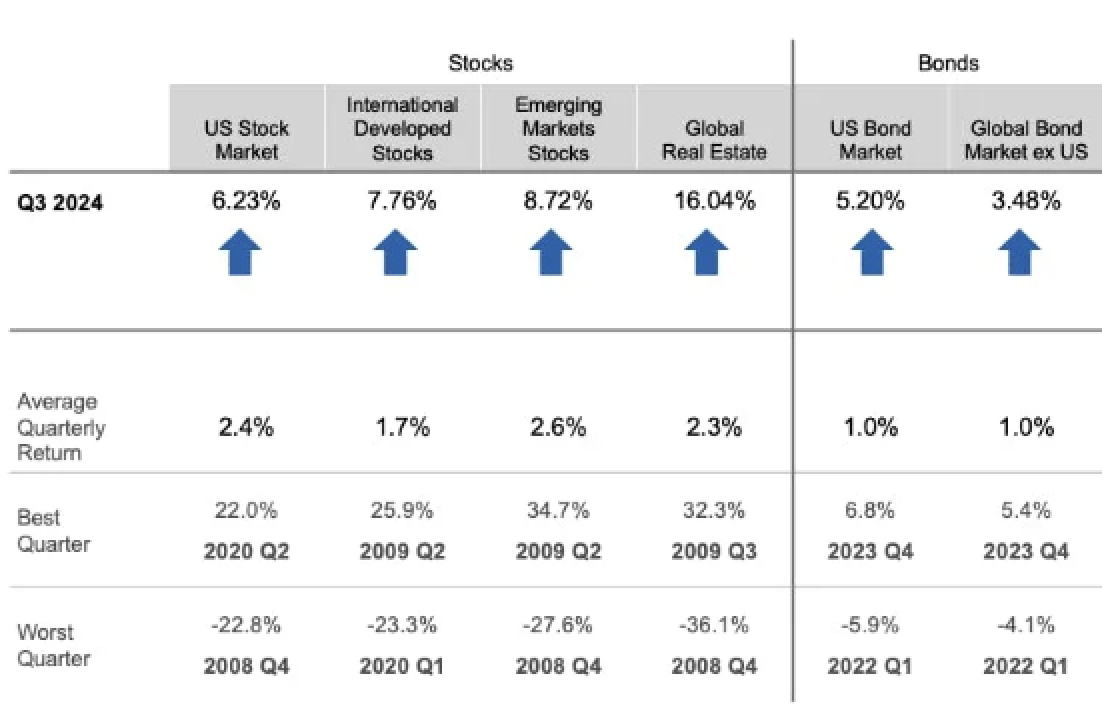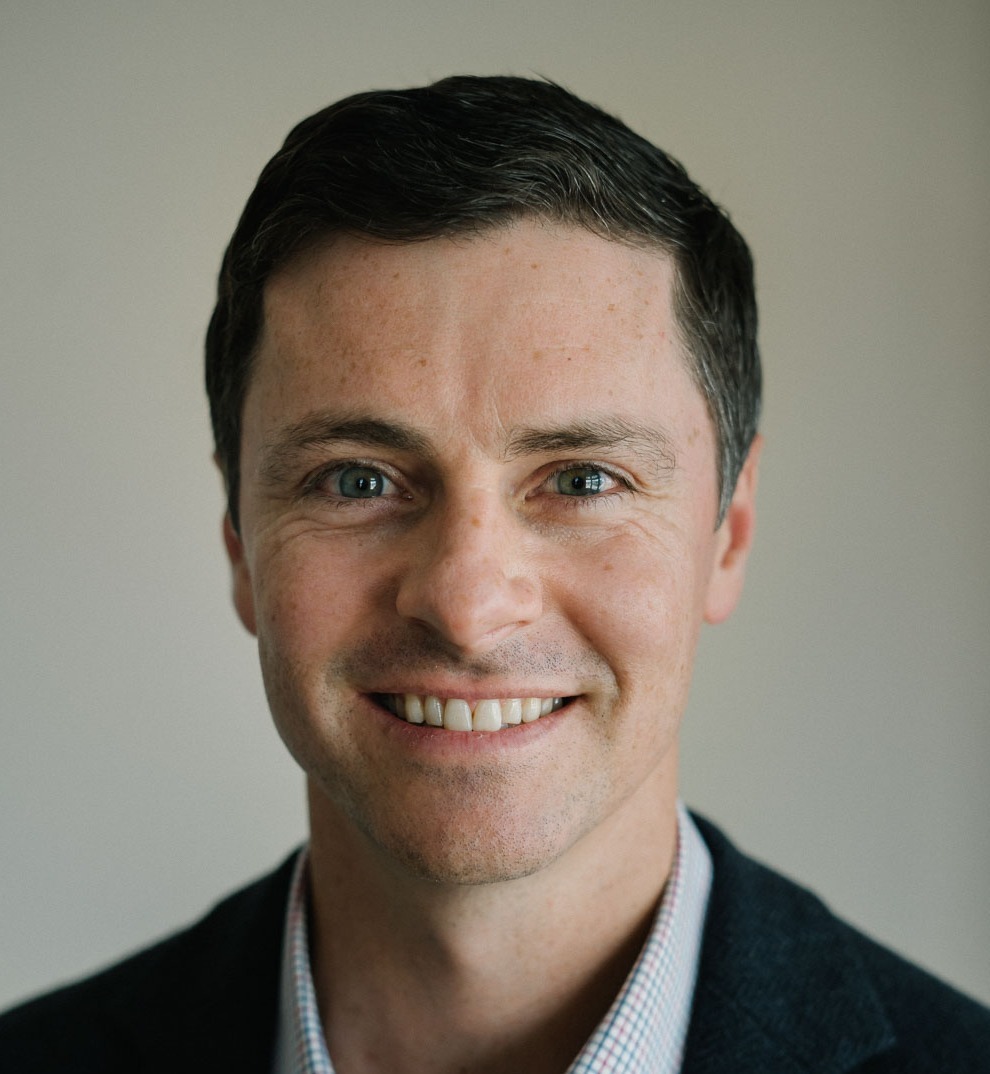-3.png)

Quote to Ponder
“The only thing that is truly risky is not owning equities. The decline is temporary. The advance is permanent.”
- Nick Murray
Quarterly Review
This weekend, I watched Leave the World Behind, a film that taps into one of my favorite genres—emerging apocalypse. The story is simple yet haunting: a family, blissfully on vacation, faces an unimaginable scenario as a cyberattack cripples their world. What I love about this genre is not the disaster itself, but the sense of creeping dread, the slow unraveling of stability. That fear, the idea that everything could collapse at any moment, hooks me in. It’s no surprise that this genre sells incredibly well. The fact that fear sells so well is also why there are always a lot of articles predicting imminent doom. If you want people to read your article about the stock market, the solution is simple: scare them.
Fear has a strange way of infiltrating our lives, making what feels safe seem like the smartest choice. In 2008, during the peak of the financial crisis, I stumbled across the writings of John Hussman, manager of the Hussman Funds. He had accurately predicted the dot-com crash of 2000 and the 2008 market collapse. At the time, his words felt prophetic- and he was not predicting good things: “My discomfort about strenuously overbought and moderately overvalued conditions overlaps with skepticism about the U.S. economic "recovery," which appears to be nothing but an artifact of government spending, while intrinsic economic activity remains weak. Stimulus induced "strength" is unlikely to propagate because, as I've noted before, economic recoveries are invariably led by expansion in debt-financed forms of spending such as gross domestic investment and durable goods”.- Strenuously Overbought, September, 2009
Hussman positioned his funds to reflect his caution- a sense that had served him well in both 2000 and 2008. Fast forward 15 years to the present day, and Hussman is STILL preaching the same message of impending doom. His blog posts consistently warn of a massive market crash. He frequently cites that the market is “overvalued, overbought, overbullish.” Just last October, he claimed the market could fall as far as 63% (unfortunately for him, and fortunately for us, the S+P 500 disagreed and calmly waltzed 33% higher).
Now, I have to admit that John Hussman is FAR smarter than I am. In fact, I’m sure that someday he’ll be right, and the market WILL fall a lot. There’s just a cruel twist of fate to be observed here: Hussman has been so afraid of a 50% market decline that he actually produced the very thing he’s afraid of - a 50% drawdown. If you had invested $100,000 in the Hussman Strategic Growth fund in September of 2009, you would be down to just $50,000. You read that right- a cumulative 50% loss over 15 years.
Meanwhile, the S&P 500—the broad, boring benchmark of American capitalism—has grown 633% over the same period. So, to recap: $100,000 with Hussman in 2009, you’d have just $50,000 left. But if you’d stayed in the S&P 500, your $100,000 would have grown to $633,000.
The fear of market losses causes investors like Hussman to try to preserve their assets by being conservative. But being too conservative causes them to lose money. Fear is seductive. It makes us feel smart, prepared, and safe. But in markets, as in life, the things that feel safe often carry their own hidden risks. Hussman’s story is a perfect example: his fear of market collapse caused him to miss one of the greatest bull markets in history. By trying to avoid risk, he created more of it.
I love the title of the book by the investor Marty Whitman: “The Aggressive Conservative Investor.” It succinctly captures the reality of investing- to preserve assets, one must actually be somewhat aggressive. Nick Murray, a well-known financial author, puts it best: “Optimism is the only realism.” Yes, markets will crash. Yes, downturns will happen. But over time, the market grows. It rewards those who stay the course, those who believe that progress, innovation, and growth will continue, even through the darkest times.
The real danger isn’t in the crash itself; it’s in letting fear dictate your decisions. Hussman’s story is a cautionary tale. He let his fear of losing money cause him to miss out on massive gains. The investors who stayed optimistic, who held on through the tough times, came out far ahead.

This material is intended for educational purposes only. You should always consult a financial, tax, or legal professional familiar with your unique circumstances before making any financial decisions. Nothing contained in the material constitutes a recommendation for purchase or sale of any security, investment advisory services or tax advice. The information and opinions expressed in the linked articles are from third parties, and while they are deemed reliable, we cannot guarantee their accuracy.
